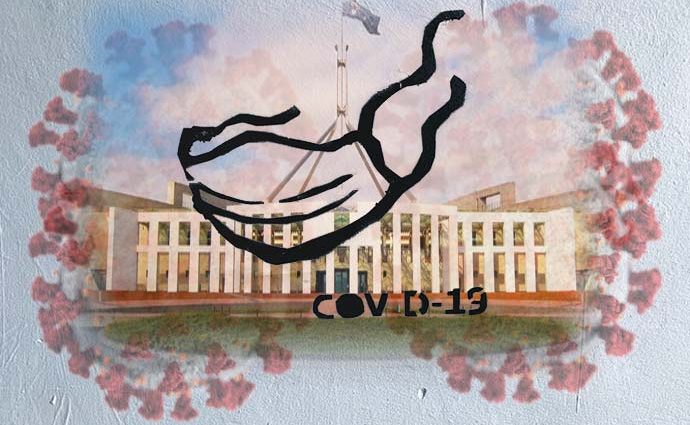I hope readers will indulge me a slightly more personal column this month. It has ben a long time since I have last written for this paper, and this absence has been due entirely to the personal dislocation caused by the Victorian government’s policies in response to COVID-19. It has been almost a year since I was banished from my office at Monash University and told to “work from home’ – a concept I neither like nor support. It has been a battle just to do the basic tasks such as teaching and assessing students. The transition of teaching from a form of human interaction to an atomised activity expedited by a laptop computer has been achieved with extraordinary speed. I wonder what the consequences of this transition will be for the quality of education. Like the economic consequences of lock-downs and so forth, I suspect the full cost will not be realised until some time in to the future.
The politics of COVID, meanwhile, have been dominated by the exercise of the great capacity governments have to exercise immense power over their citizens and the rendering as irrelevant some of the mechanisms of the liberal democratic state that are supposed to check government power. Thus COVID became the basis for the suspension of parliaments and the normal systems of collective cabinet government. The police became an arm of the health bureaucracy, giving coercive power to the Chief Medical Officer who, under state of emergency powers, has in some jurisdictions almost as much power as the elected head of government.
The exercise of such state authoritarianism might usually precipitate a revolt from the citizenry, but, in the time of COVID, this is not really happening in all but a handful of countries. It would seem that governments are reflecting the deep fear of COVID that exists amongst the common people. Indeed, the pattern emerging in recently held elections is that those administrations viewed as having taken COVID seriously and imposing repression on their communities in the name of health policy have been returned, whilst those like Donald Trump’s American administration that tried to play down the COVID matter, have been defeated. Thus it would seem that those who speak against the fearful popular majority are struggling to have their perspective taken seriously or are branded as part of a dangerous lunatic fringe. Incumbent governments are rewarded with election success, whilst oppositions are irrelevant.
It is as if everyone is at war. And yet, unlike, say, compared with the death toll of World War Two, the COVID mortality rate is not that great and is commensurate with a host of other illnesses that can take people away during the course of a year. In Australia, hardly anyone has died from COVID 19, with the largest tranche of casualties being confined to nursing homes in Victoria during the winter where hotel quarantining failed. Governments and the proponents of repression of civil society in the name of public health would say that this reflects the success of the policies they advocate. Sceptics argue this low mortality rate reflects Australia’s advantage as an island nation able to prevent the transmission of COVID via international travel – but this will be only a temporary reprieve unless Australia intends to seal itself from the rest of the world for as long as COVID is around. According to this view, state oppression represents an over-reaction and an abuse of state power.
As things stand at the moment, governments, the health authorities and a craven population constitutes an overwhelming majority who are convinced that the COVID threat is worth the economic cost and the social dislocation government policies have exacted. This is despite the statistical evidence that the virus isn’t as dangerous as originally thought. This all demonstrates how quickly fear can displace rational thought when a crisis occurs. It also accounts for electoral endorsements of those governments that have presided over lock-downs and economic destruction. The people, it appears, are grateful to government for the way it has oppressed them in the name of ‘public safety’.
The reports of a slowing down of infection rates in the US and Europe, along with the roll-out of vaccines, represents something of a circuit-breaker in the cycle of COVID hysteria. Perhaps by this time next year the COVID crisis will have ended. It will be then that the economic costs will have to be counted, especially for the public sector that is responsible for health, education and a host of other services. In other words, expect a collapse in teacher and nurse numbers in the future. One wonders if the community will then think that it was all worth it. Meanwhile, as the COVID hysteria continues, the words of American poet William Hughes Mearns penned in 1898 seem appropriate at this time:
Yesterday, upon the stair,
I met a man who wasn’t there!
He wasn’t there again today,
Oh how I wish he’d go away!

